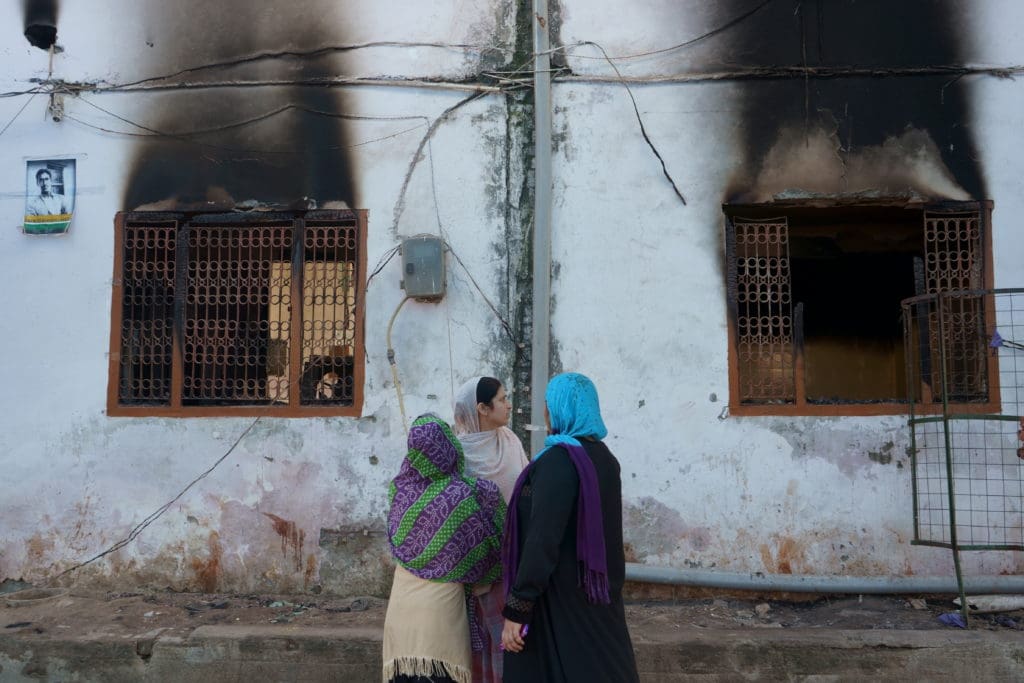By BISWA KALYAN PURKAYASTHA / The Quint
In 2014, then BJP prime ministerial candidate Narendra Modi, while addressing a rally in Assam’s Cachar district, had spoken about Arjun Namasudra, a Bengali Hindu, who had died by suicide after receiving a notice from a Foreigners’ Tribunal.
Now, Akol Rani Asked To Prove Her Identity
But now, a decade after his death, Arjun’s mother, Akol Rani Namasudra, is faced with a similar predicament. The 80-year-old woman has been asked to prove her identity. She is a resident of Haritikar Part-1, which falls under the Katogorah Assembly constituency near the India-Bangladesh international border.
In the notice, member of FT-4, Dharmananda Deb, wrote, “You (Akol Rani Namasudra) could not produce any valid document before police during enquiry/verification regarding your citizenship within the stipulated period of time and on this ground, you are suspected to be an illegal migrant.”
Senior lawyer from Silchar, Anil Chandra Dey, has taken the responsibility of presenting Akol Rani Namasudra’s case before the FT-4. Dey said, “She has adequate documents to prove that she is an Indian. But it’ll take at least three hearing dates to convince the court.”
‘My Entire Family Is Disturbed’
Akol Rani Namasudra resides in her house built under a government scheme. She has several physical ailments, which prevent her from even cooking; sometimes, she sleeps on an empty stomach.
She says she’s afraid. “How can I not be afraid? If I fail to convince the court that I am in Indian, I will be sent beyond the fences. I don’t have any other option but to fight back. The court has summoned me and I will appear with all my documents. I have a senior lawyer to help me and he said that I can prove my Indian identity,” Akol Rani adds.
In spite of holding a citizenship card from 1956 issued by the Government of India under his father’s name, Arjun Namasudra’s Indian Identity was questioned in 2012. He died by suicide out of fear of being arrested and sent to Bangladesh, according to his family. Akol Rani was also born in Katigorah area, which falls under Cachar district of Assam.
‘Living in Fear of Being Deported’
Akol Rani says, “We live in the border area, where the fear of being thrown out of India is rampant. That fear disturbed my son. He was an emotional person. After realising that the notice had questioned his identity, Arjun told me, ‘You all are counted as Indian, they excluded only me, I am a nobody now.'”
Explaining what had happened in 2012, Akol Rani says, “I tried to convince my son that it happens to others as well and that we will prove his identity. But he couldn’t handle the pressure and killed himself. He left me alone to live this life.”
Politics Over Arjun’s Death
Senior leader of Vishwa Hindu Parishad and lawyer, Santanu Naik, says that he is shocked to learn that Arjun’s mother got the FT notice.
“The PM himself assured that nobody would suffer like Arjun anymore. Arjun proved his identity after his death. The government has passed the Citizenship Amendment Act, which can save Hindus. Still, the FT issued a notice to Akol Rani. We don’t understand how,” he says.
Naik also claims that the police do not serve the notice properly. “There are thousands who don’t get information that there are cases against them. They don’t appear, and the court would declare them foreigners in ex-parte (one-sided) judgments. If the FTs are courts, they should work as per the law. When a person fails to appear, the FT should issue a warrant before coming to any conclusion,” he adds.
‘Assam Needs More Martyrs’
“Arjun killed himself because of an injustice. If his mother wins the case, the government will understand. He is a martyr and we need at least 4-5 such deaths, because without deaths, how freedom will come?” he says.
Before Arjun’s mother, his mother-in-law Sabitri Biswas had also received a notice from the Foreigners Tribunal in 2017. The family is fighting the case till date.
In Sabitri’s words, “For us, this has become a regular affair. But Akol Rani Namasudra has already suffered a lot. At this age, why should she go through all this again?”
According to local residents, in 1956, the Government of India had allotted land to 173 migrated families from East Pakistan (now Bangladesh) in Katigorah area. But many of their descendants have received D-voter notices in recent years and many of them have also failed to register their names in the final draft of the NRC.
This article first appeared on thequint.com





